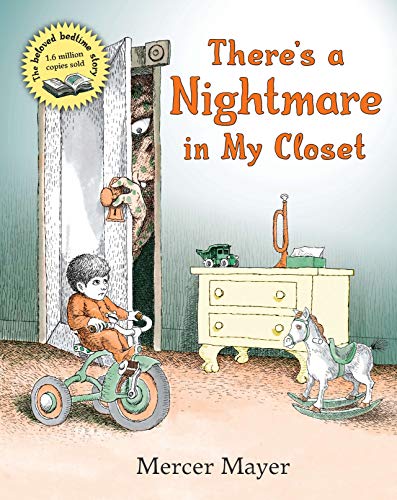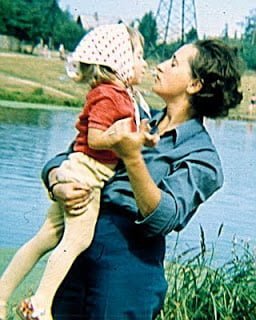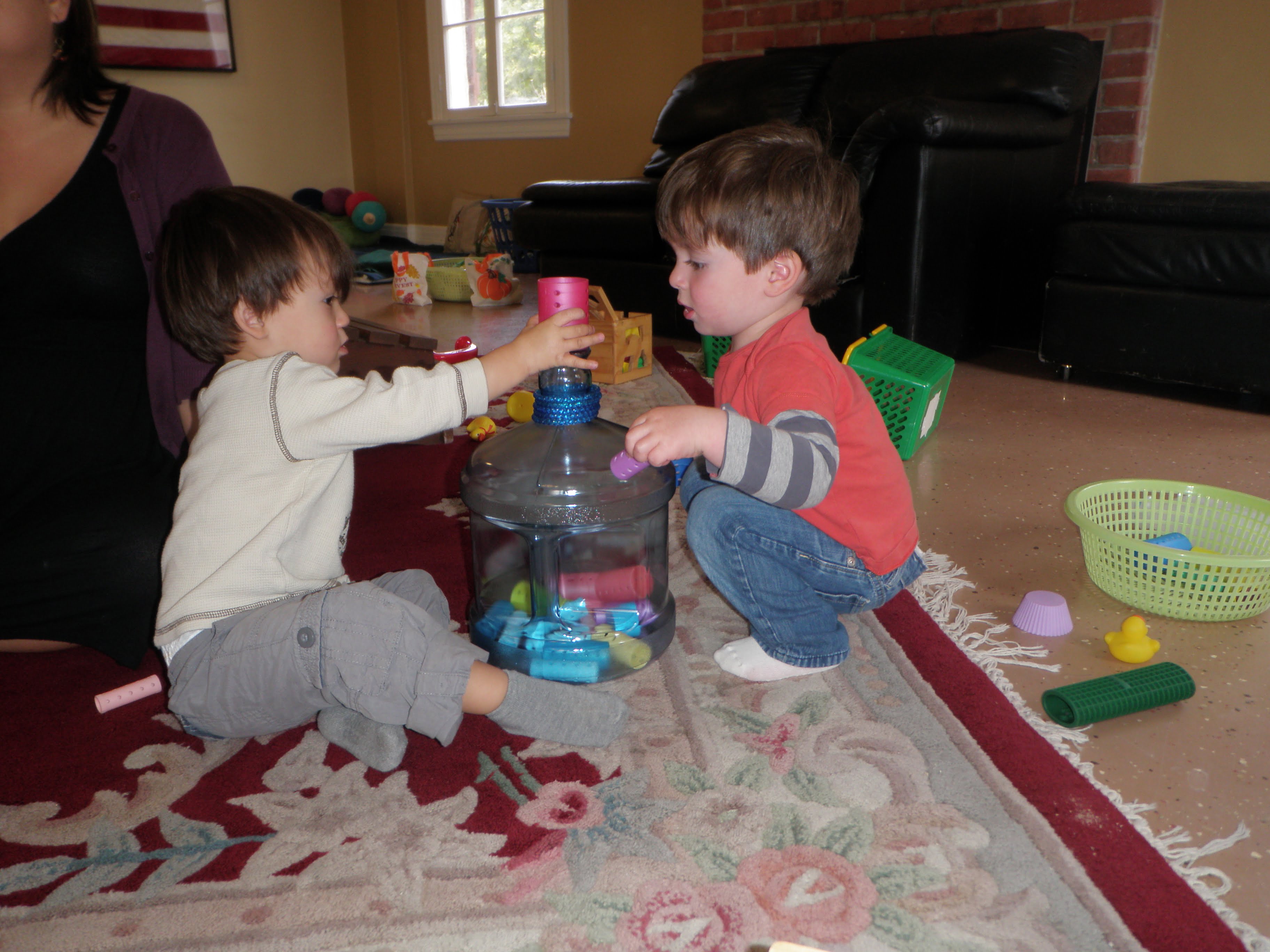Susan pulled out a book from the bookshelf and handed it to Teacher Kira. Teacher Kira asked her, “Would you like me to read it to you?”
Susan beamed, “Yes!” In no time, six more children gathered around Teacher Kira on the carpet for storytime.
“The title of the book,” Teacher Kira began, “is ‘There is a Nightmare in My Closet.’” She opened the first page and started reading, “There used to be a nightmare in my closet….” There weren’t many words in the book, but the illustrations and the few words that were there captivated the children, urging them to interpret, share, and add to the story.
Molly said, “I don’t like nightmares! I am scared of them….”
Alex shared, “I really like dragons and nightmares.”
Tom, who sat on an orange pillow, exclaimed, “There is no nightmare in my house! We keep the closet door closed.”
Teacher Kira continued reading, “Quickly I turned on the light and caught him sitting at the foot of my bed.” She showed the children the picture on that page. There was a big, clumsy nightmare balancing on the edge of the boy’s bed. The boy bravely turned on the light, ready to protect himself.
Susan shouted, “Oh no! This is not good! Oh no! This is not good!”
Teacher Kira knew that Susan had an apprehension of nightmares.
She previously shared that when she has nightmares she goes to her brother’s room and that she doesn’t play with dragons because she is scared of real dragons. So, Teacher Kira’s first instinct was to comfort Susan and help her overcome this fear. On second thought, Teacher Kira decided to hear more of what Susan had to say, so she asked Susan, “I wonder, why is it not good?”
Susan replied, “He might lose his balance and hit his head on the floor! It happened to me before when I sat like that on my couch.”
Assumptions – do you often make them? I know I do!
I think they are a natural part of our survival mechanism when we need to evaluate a situation quickly and come up with some interpretations. However, when we are in our day-to-day lives, we can try to go against the instinct of making fast assumptions.
I think this story is a perfect teachable moment for grown-ups to be present, hear, and pause before acting when talking to children. Do you recall situations when slowing down and listening helped you learn something new? Or when you assumed something about a child and they surprised you by saying something completely different than what you expected?
Let me know if you need more information about RIE® Parent-Infant Guidance™ Classes.
Wishing you all the best in the difficult yet exciting journey of parenting!
Warmly,
Teacher Kira














